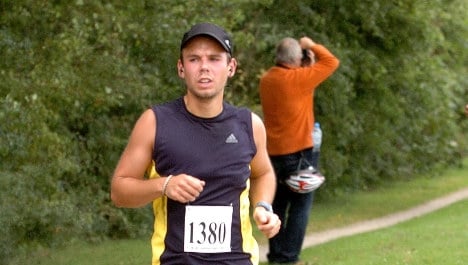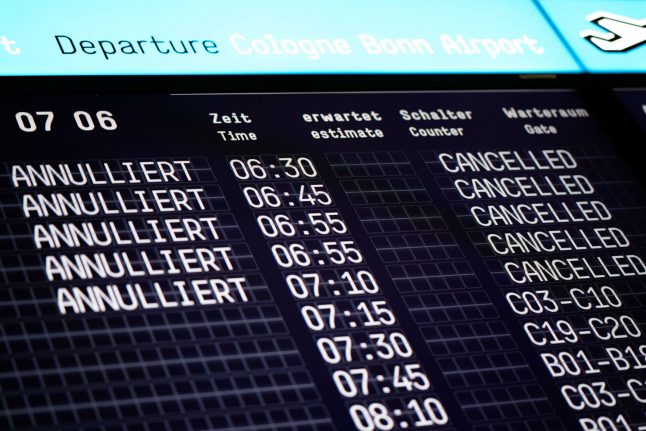Lubitz looked into obtaining potassium cyanide, valium and “a deadly cocktail of drugs” business daily Handelsblatt reports.
The 27-year-old also appears to have looked into the possibilities for patient care in the event that a suicide attempt had been unsuccessful.
Until now the Düsseldorf prosecutor had only confirmed that he had looked into “possibilities for suicide.”
According to the investigators Lubitz hadn’t told anybody about his suicidal thoughts. Neither doctors, his employer nor his family knew about his intentions, the prosecutors said on Friday.
“The French penal code forbids me from opening a judicial enquiry for murder because the perpetrator is dead,” said Robin, who appointed three investigative judges to lead the manslaughter probe.
Grieving relatives were shown three different reconstructions of what had happened in the cockpit on their trip to Paris to seek answers about the doomed flight, according to the head of a disaster support group who attended the meeting.
Investigators say that 27-year-old German co-pilot Andreas Lubitz intentionally downed the plane en route from Barcelona to Duesseldorf on March 24, killing all 150 on board.
Robin said Lubitz, who suffered from “psychosis”, was terrified of losing his sight and consulted 41 different doctors in the past five years, including GPs, psychiatrists and ear, throat and nose specialists.
Several of these doctors who were questioned by German investigators said Lubitz complained he had only 30 percent vision, saw flashes of light and suffered such crippling anxiety he could barely sleep.
Lubitz reportedly said “life has no sense with this loss of vision”.
However the doctors he consulted — including one who booked him off work two days before the ill-fated flight — did not reveal his mental struggles due to doctor-patient privilege.
“How to handle medical privilege and flight security when you have a fragile pilot” will be one of the key questions in the judicial inquiry, said Robin.
Anger over repatriation delay
Stephane Gicquel, the head of the support group, said the “stakes” in the expanded probe were to find out if there had been errors in tracking the mental state of the co-pilot.
“We can clearly see the prosecutor's positioning, to open an enquiry that will pose the question of manslaughter and, very clearly, faults or negligence from Lufthansa in detecting the state of Lubitz's health,” Gicquel said.
Some families, meanwhile, were left outraged when Lufthansa, the parent company of Germanwings, informed them that repatriation would be delayed due to problems with the issuing of death certificates because of spelling errors.
The mayor of the French village of Prads-Haute-Bleone, near the crash site, said there had been slight spelling errors “of foreign-sounding names” on several death certificates.
After a complaint by the families of some schoolchildren killed in the crash, who had already planned funerals, a flight returning their remains went ahead as planned on Wednesday.
However to date the remains of only 44 Germans out of the 150 people killed in the March 24 disaster have been returned home for burial.
A total of 72 Germans were on board the doomed Airbus A320.
Robin said 30 Spanish victims would be repatriated on Monday, and that all remains of the people from 18 different countries would be returned by the end of June.
She said repatriations were also delayed because of differing laws on embalming the victims' bodies in the various countries involved.
Investigators only last month finished identifying the remains of all 150 people on the flight.
Unidentifiable remains would be placed in a “collective tomb” in the town of Vernet not far from the crash site.



 Please whitelist us to continue reading.
Please whitelist us to continue reading.
Member comments